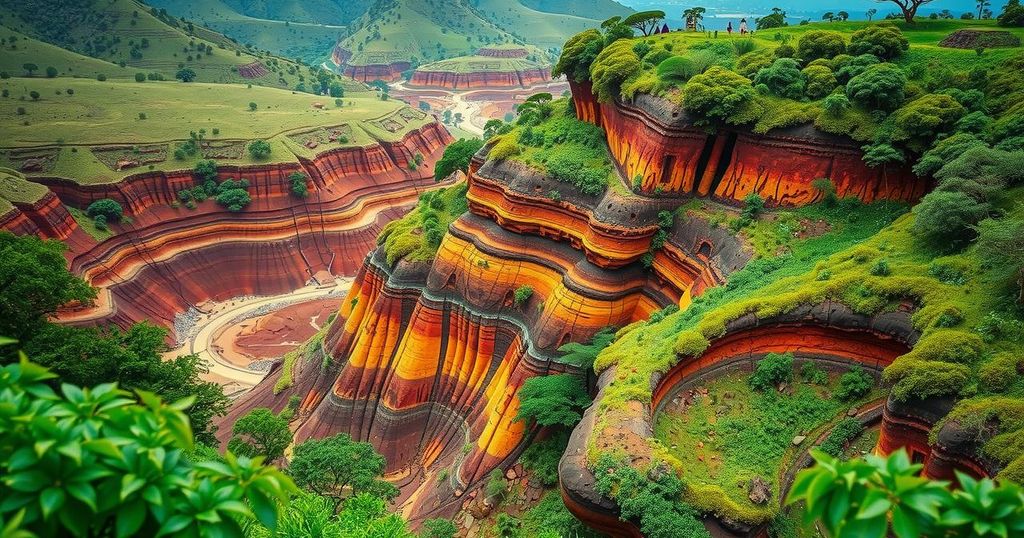US President Donald Trump is exploring the Democratic Republic of the Congo for a potential deal on rare earth minerals after talks with Ukraine stalled. The DRC is rich in essential minerals needed for technology and electric vehicles, but is currently embroiled in conflict with the M23 rebel group. The situation is complicated by allegations of Rwandan support for M23 and the US’s strategic competition with China for mineral resources.
United States President Donald Trump is now focusing on the Democratic Republic of the Congo (DRC) in his pursuit of a deal concerning rare earth minerals, following stagnated negotiations with Ukraine. The DRC, plagued by conflict, is currently witness to a resurgence by the M23 rebel group, which has gained control over significant areas, including Goma and Bukavu, both known for their mineral wealth.
The DRC’s abundant resources are pivotal for various high-tech products, particularly electric vehicles. As noted by Yinka Adegoke, Africa editor of Semafor, the region is rich in essential minerals such as coltan and cobalt. These minerals are integral for modern technology, including smartphones and batteries for electric vehicles, making this region notably valuable.
The M23, primarily composed of individuals from the Tutsi ethnic group, is seeking to maintain control over mineral-rich territories. Recent diplomatic talks between DRC President Felix Tshisekedi and Rwandan President Paul Kagame have called for a ceasefire, the outcome of which remains uncertain given the rebels’ influence.
Furthermore, there are indications that President Trump may appoint Massad Boulos, the father-in-law of his daughter Tiffany, as a peace envoy, as part of the US’s strategic interest in DRC’s minerals. The US State Department has acknowledged that the DRC possesses a “significant share of the world’s critical minerals required for advanced technologies,” highlighting the necessity of a mutually beneficial agreement.
The competition for cobalt, dominated by China—which controls 80 percent of extraction in the DRC—underscores the urgency for the US to negotiate a favorable position in this mineral-rich country. China’s significant investment in Africa poses a challenge for the US as it seeks to enhance its influence in the region. Brokering peace in the DRC could facilitate access to these strategic minerals.
Allegations persist regarding Rwandan support for the M23, raising questions about the balance of power in the ongoing conflict. Discussions highlight a possible agreement where M23 could retain control over certain barren mines after negotiations conclude. The Congolese government faces a staggering human toll, with thousands dead or displaced as the conflict escalates.
In past operations, the Congolese army’s efficacy has been severely hindered by issues of corruption and lack of support for its soldiers. Their recent failures to retain territorial integrity present a concerning scenario for the DRC. As peacekeeping forces withdraw from the region, the prospect of renewed M23 advances over critical mineral areas has become more plausible, as the DRC’s immense mineral wealth might once again lead to conflict rather than prosperity.
In conclusion, the Democratic Republic of the Congo finds itself at a crossroads, as the US seeks to secure vital mineral resources amidst ongoing conflict with the M23 rebel group. The geopolitical dynamics, including competition with China and regional tensions with Rwanda, underscore the complexities surrounding potential peace negotiations. Ultimately, the DRC’s rich mineral deposits, while promising, continue to pose significant challenges for stability and governance in the nation.
Original Source: www.abc.net.au




